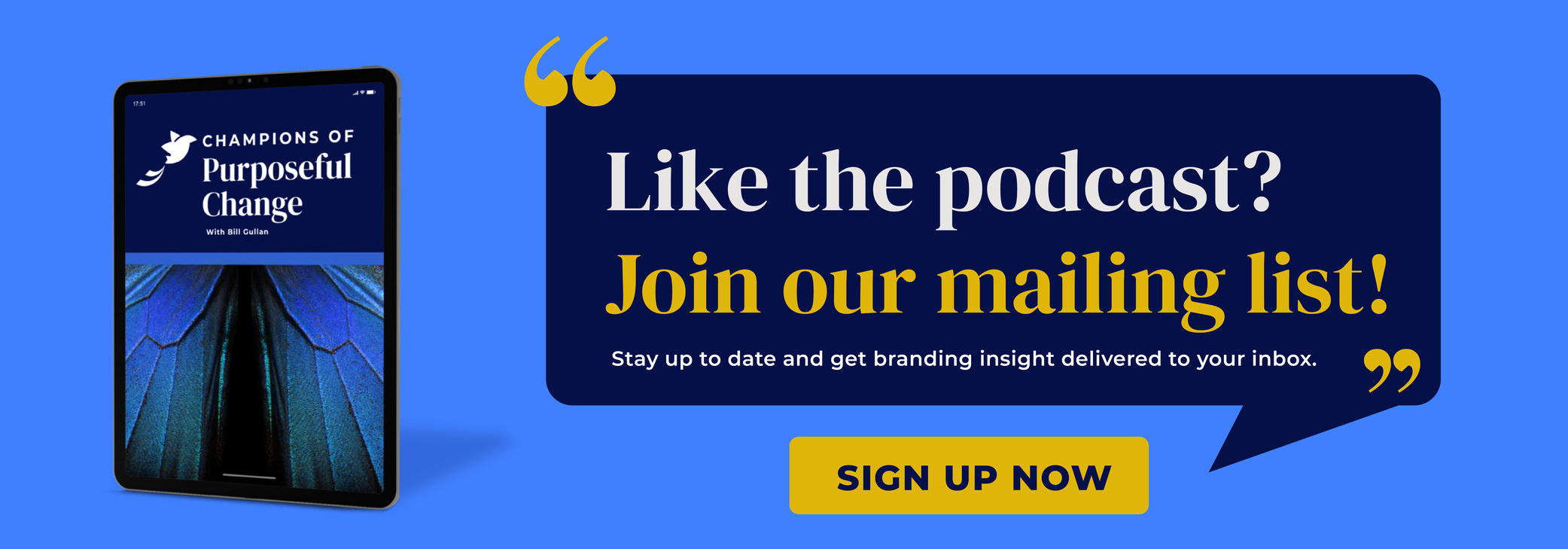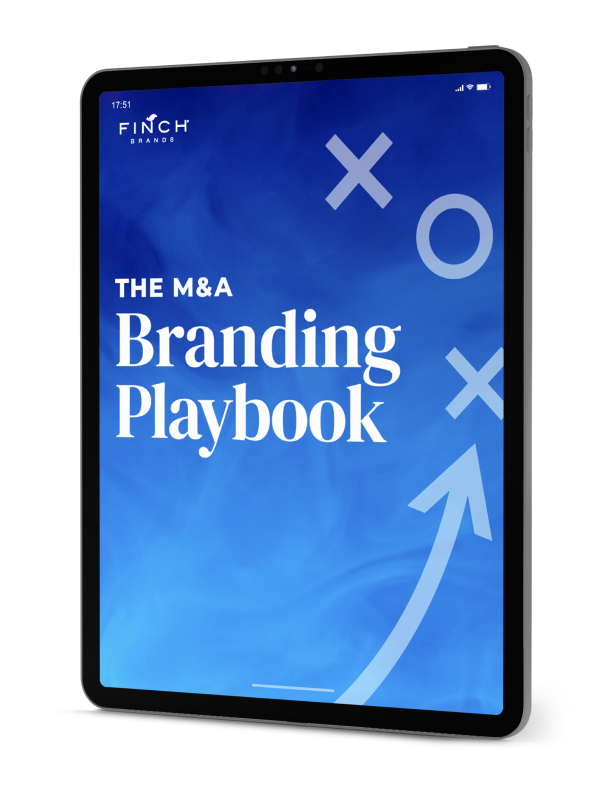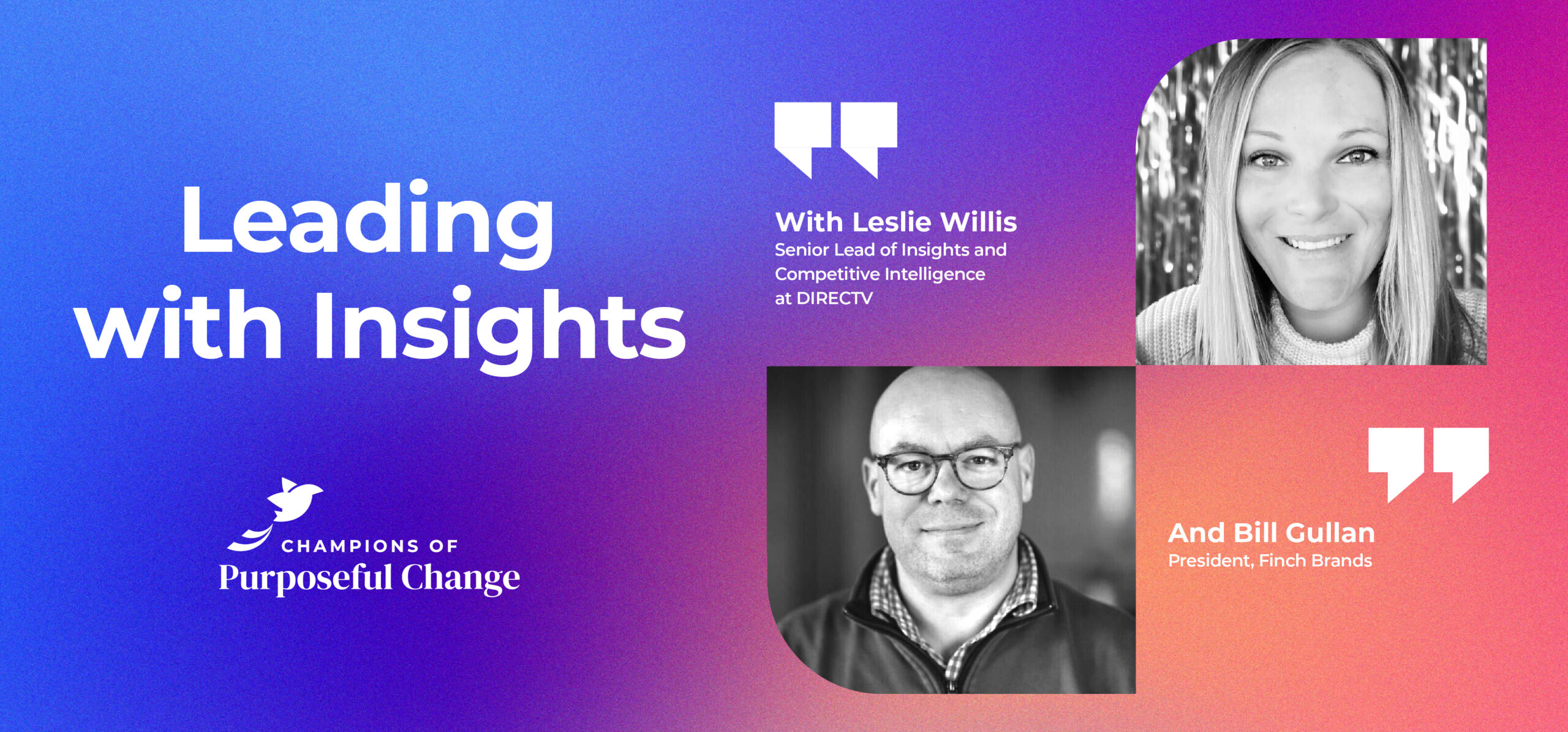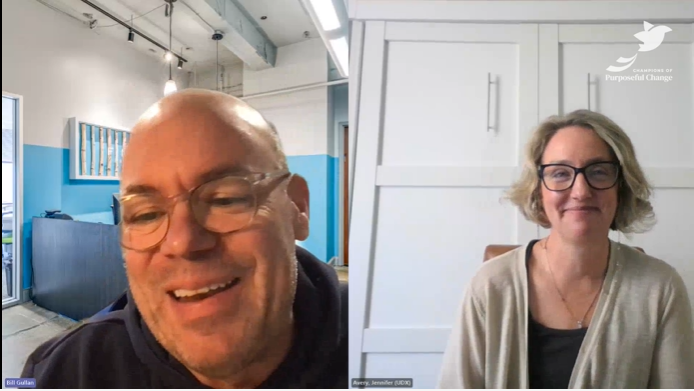Intellect, Integrity, and Intensity: Ed Trissel, Partner – Joele Frank

Ed Trissel, Partner at Joele Frank, joins us today on the Real-World Branding Podcast. Ed provides strategic communications counsel to U.S. and international companies and private equity firms with long-term corporate positioning and investor relations programs, transactions, special situations, crises and issues, and restructurings. If you like our podcast, please subscribe and leave us a rating!
Podcast: Download Subscribe: iTunes | RSS Transcription:
Bill Gullan: Greetings, one and all! This is Real-Word Branding. I’m Bill Gullan, president of Finch Brands, a premiere boutique brand consultancy, and we’re grateful to have you with us, and extremely grateful to Ed Trissel, who’s our guest this week. Ed is a partner at Joele Frank, which is a premiere, very significant New York-based PR firm and strategic communications firm.
Bill: Ed’s going to talk about his own career development, and the role that he and others play, I think, in the highest-stakes lane within the PR industry. PR is a term that’s used for a lot of different endeavors. You often hear PR to be associated with those in the events space, or trying to get people to show up for something, or those in the kind of media relations space, who are issuing press releases and hoping to earn coverage for their clients.
Bill: The type of PR that Ed practices includes maybe some of those elements, but the core of it is, really, helping leaders navigate the highest-stakes junctures in their business lives, whether that’s an M&A transaction or some other financial event, whether it’s a crisis or a particular issue that is existential, often, to the lives of his clients and their businesses.
Bill: Ed began his career and we met in the mid- to late-’90s, working on a project together, but Ed quickly traversed through some of the most beloved names in the PR marketplace that led to his founding of his own shop, and ultimately, he was a managing director at Joele Frank from ’07 to ’11. He then went to Warburg Pincus, which is one of the big-time, probably top five private equity firms in the world, and in that role, Ed was research for two things. One, Warburg’s own communications practice, but also their support for their portfolio companies around the world who were often communicating, again, big moments. Whether that was mergers or investments or, again, really sort of essential elements of how they grow and who they are.
Bill: And then, in April of 2016, Ed went back, as he’ll tell you, to Joele Frank in a partner role, where he’s been for the last three and a half years. He’s a terrific practitioner and exponent of the power of what PR can be at the highest level, and I know that you’ll enjoy Ed Trissel.
Bill: Joining us by phone, this sounds like old-school call-in radio, Ed, like first time/long time. But joining us by phone from San Francisco on travel is Ed Trissel, who’s a partner at Joele Frank. Ed, thank you for your time, and it’s great to speak with you, my friend!
Ed Trissel: Happy to be here! Thanks so much for having me on as a guest. Looking forward to chatting with you.
Bill: Excellent! It’s our pleasure, and our listeners’ pleasure, and let’s start maybe where we normally do, with a little bit of a twirl through your own background. And I know, undergrad in Austin at Texas, journalism, PR. You’ve been in the agency world as a senior leader, or an operator. You’ve been on what you may call the client side, I guess, at Warburg Pincus.
Bill: Take us a little bit through your background. We met in the late ’90s, but I think our listeners would love to hear about these inflection points and journeys that you’ve taken.
Ed: Sure, sure! Happy to do that. Yeah, I studied journalism and public relations at the University of Texas at Austin. I actually started off thinking about radio, television and film, and then the Exxon-Valdez spill happened…
Bill: Oof!
Ed: Which, if some of your listeners aren’t familiar with it, Exxon-Valdez was an oil spill that was really a manmade disaster. It occurred when that oil tanker spilled millions of gallons of crude oil into an Alaskan Sound, and this was in ’89.
Bill: Yeah.
Ed: That’s when I was first exposed to crisis management, and public relations, and how… It is a textbook example of how something should be handled differently.
Bill: Yeah, yeah, right, right.
Ed: To put it nicely. Anyway, that steered me towards studying public relations, and I started my career in Dallas working for Bussen & Company, a gentleman named Greg Bussen.
Bill: Yep.
Ed: He gave me first shot. I learned a ton from him, he’s very strategic, great manager; I had my first experience, and that’s actually where you and I first met.
Bill: Yep!
Ed: And shared a client together. Kind of funny how things work out, right?
Bill: Yeah, we were both four years old at the time, I think.
Ed: Yeah!
Bill: We were toddlers, right?
Ed: Well, yeah, yeah, yeah. I’d like to think, every once in a while, I’m still that way.
Bill: Yeah, exactly.
Ed: I started my career there. The next big move for me was to New York, and I went to work for Ketchum. It was a brief stint. It was one of my career regrets. There’ve been a handful of those. I just left there too soon. They treated me really well and gave me a great opportunity. Went to Helen Nolton, and there’s where I ended up meeting my future business partners, where we launched our own communications advisory, a small boutique in New York that, actually, you named, Bill.
Bill: I think all I got out of that was a steak dinner and a deeper friendship, but, yeah!
Ed: Well, that’s all we could afford at the time. We were a startup, so…
Bill: Yep!
Ed: And that’s one of my most rewarding experiences in business, because while some things, you always wish turned out differently, some things work out quite well. But not for that, I wouldn’t have had the opportunity to run a business and have that responsibility. And ultimately, it was where I connected with the firm Joele Frank, and at the time, the firm was about six, seven years old, really standing out in my mind among its peers as being really hungry, great advocate for clients, and really taking on more of the complex assignments in the marketplace.
Bill: Right.
Ed: And for those who don’t know about the firm, it’s a lot of strategic communications around complex issues in high-stakes situations, like M&A, defense against some activist shareholder, crisis communications, management changes, so on and so forth.
Ed: But you know how sometimes in life, you meet a group of people and you’re immediate thought when you walk away from the first interaction is, “I found my people”?
Bill: Yeah, yeah.
Ed: That was it for me. And I was there a few years, four years, I think, and I’d just been made partner, and I was approached by Warburg Pincus to head up their communications globally. And the appeal for me, because I had no interest in leaving Joele Frank, was, “I can learn how to do business internationally.”
Ed: Because one of my other career regrets is never finding a way to go work in London or Hong Kong for a couple years, and at the time, I was 41; there’s no way that Amy and I were going to do that, with the kids just starting school. But the appeal of being able to go to China and India, England, Germany, learn how to do business in the Middle East, Brazil, so on and so forth, that was a draw for me.
Ed: And while they treated me like a king, there was a fantastic experience, it was a reminder, being around all these different business owners and entrepreneurs, including the management of Warburg Pincus, that I’m an entrepreneur at heart.
Bill: Yeah, right. Right.
Ed: And I miss helping build a firm, grow the people, be part of something where I could really contribute in a different way than the opportunity afforded me in-house. So, I was very fortunate that Joele Frank, the firm and the partnership, had me back. And I’ve been there since 2016, and I’m really enjoying it.
Bill: That’s wonderful. The Warburg experience you have had prior to that, your own venture but also 10 years at sort of gold-plated, legendary names in the PR world. Warburg is such on the private equity side.
Bill: You were managing within that role, as chief communications officer at Warburg. You were managing, obviously, the firm’s communications and the maintenance of its brand, and the execution of its overall communications programs, but did it feel almost like you were still in an agency role, though, given all the portfolio companies and needs and situational, transactional PR support; how much of that experience was about sort of managing Warburg, versus counseling your business partners as they went through transactions or other important moments?
Ed: Oh, it was a great mix, and your observation’s spot on, that it was like heading up a mini-agency inside a global firm in that, depending upon the region, the type of transaction; whether it was startup, a growth investment, or a later stage, across six different industries, there was always something interesting going on where you had to interact with the management team of the portfolio company, provide counsel to them. Maybe help them find a different partner.
Bill: Right.
Ed: Whether it was communications, or it could be a marketing firm, a branding firm like Finch, so on and so forth. It was a very eclectic mix. And very enjoyable, from that standpoint.
Bill: Mm-hmm, mm-hmm (affirmative). You know, Warburg is probably a top five private equity firm worldwide, and I would imagine, to your point about rediscovering or at least confirming your entrepreneurial makeup, I guess, or composition… Going back to Joele Frank, these were your people, you said earlier on. Talk a little about what you’re doing day in and day out in your role as a partner at Joele Frank, and you talked a little bit about the firm, but go a little deeper, if you wouldn’t mind, as to…
Bill: This isn’t, “Hey, we’ll do a press release and hope the media covers it,” PR. This is big stuff, this is high-stakes stuff at big moments for institutions. Talk a little bit about what the day in, day out is like for you these days.
Ed: Sure. Well, the beauty of a firm like ours is that no two days are the same.
Bill: Sure.
Ed: And you can have a sense, when you wake up in the morning, what the day might look like, and by the end of the day, you’ve accomplished half of that, but done a lot more in another area. So, it’s very satisfying from that standpoint.
Ed: And as a partner at the firm, I mean, I think about the three legs of the stool. You want to counsel the clients, you want to help develop the people, and then, you also want to help with the administrative, just functioning of the firm. I get to touch those in some way, shape, or form every day. Very, very satisfying.
Ed: But when I think about sort of… and you had mentioned this to me at one point in a prior conversation. It’s like, “Why PR?”
Ed: For me, it’s all about the clients.
Bill: Yeah.
Ed: And really being energized and excited about them having a need at a critical time for them, and absolutely delivering when they need it most. Regardless of what the situation is. Because even though reputationally, we’re known as, you know, when the stakes are high. The reality is we have a large base of clients that we work with on an ongoing basis, whether it’s corporate PR, or investor relations, quarterly support, and that is absolutely critical to our business. It’s critical to the client’s business.
Ed: We’re there… sometimes the tip of the spear is a special situation, but a percent of our clients ultimately stay on for some extended period of time, and that’s sort of been the foundation of our growth over the past 20 years.
Bill: Mm-hmm (affirmative). That’s terrific. You know, this podcast is about branding. At least, sort of broadly defined. What’s the role, from your perspective, of PR in helping grow and protect brands? Generally, as well as in special situations or in important moments. Could you speak about how public relations fits into the overall toolkit of brand- and business-building?
Ed: Yeah, absolutely. Happy to give you my perspective on that. While you’re the true expert in Finch’s at brands and building brands, my view is that you have to have an integrated approach to be successful with marketing in general. And the way we tend to think about it is from a defensive standpoint when it comes to protecting a brand and the reputation.
Ed: While you need marketing, comms, consumer PR, digital, SEO, all these things need to come together to help a company really accelerate growth, and ultimately end up where it wants to be as far as strategic objectives, ultimately meeting expectations of shareholders or customers, employees, so on and so forth, all those various stakeholders. Again, where we look at it is, “How do we protect that reputation? How do we help clients anticipate what might happen next to them regardless of their situation?”
Ed: And if we can better prepare them for it, the likelihood of them being able to endure a tough situation, or perhaps even avoid it, is increased. And that’s sort of the heart at what we do.
Bill: Right. You talk about… and I’d love to hear more about the balance of sort of proactive and reactive, offense or defense, here. I mean, I would imagine that a well-managed communications program in a high-stakes type of situation is not about, “Holy crap! Something just happened! How do we scramble?” Although, maybe, sometimes there’s things that can’t be foreseen, but how much, or what’s the role of sort of counseling, to what you were saying a moment ago, how to avoid or be prepared for difficult situations versus, you know, a shoe drops.
Ed: Sure. Well, when we think about… offense and defense, I love using those terms.
Bill: Yep.
Ed: Sometimes a sports analogy comes to mind, you know? The best offense is a good defense, and vice versa, and that’s the way we tend to think about it with counseling our clients. How can we help them take control? How can we help them, and I’ll use investor relations and defense against an activist shareholder as an example, how do we help these clients better prepare for that situation?
Ed: Well, put on your activist hat, and be self-critical of your company, and how you operate, how you communicate with your investors, and make certain that you have enough self-criticism, and do a bit of a SWOT analysis. “Where are we vulnerable? What can we be improving upon?”
Ed: And if you’re doing that in a peacetime situation, that can help you avoid war.
Bill: Right, sure. Sure.
Ed: And that’s really important, because if you are thinking about things the right way, you’re operating your business the way that you should be, communicating regularly with your investors and have a real handle on who they are, how they think about you; are they really understanding your strategy? Are you articulating it well?
Ed: If you get all that right, and sort of put your IR program on steroids, you can help avoid an activist coming into the stock. Now, there’s a lot of changes in the marketplace right now, where it’s very unpredictable. Large companies are being targeted, small companies, industries. There are just different ways that these activists are coming at you, but trying to take that A Great Defense is the Best Offense approach, I think, can be very effective in that type of situation.
Bill: Definitely. Both at Warburg and certainly now at Joele Frank, one of the things that you’re doing is supporting transaction communications. That could be mergers and acquisitions, or something of the like. Is there a particular club in the bag, to carry forward sports analogies, or set of circumstances for a situation like that, that call on different skills or a more intense use of some sort of fundamental skills that are part of the overall PR bushel?
Ed: I think… Well, first of all, a little bit of context.
Bill: Yeah.
Ed: In this environment today, even a so-called friendly M&A transaction is challenging.
Bill: Right.
Ed: Meaning that, it can be from behind the scenes, the negotiations and how that’s impacting how the deal comes together, and that ultimately gets communicated, to knowing that you have an investor base that is now challenging transactions publicly as soon as they’re announced, and taking opposition to them in a way that’s never happened before.
Ed: That creates a dynamic where suddenly, what you thought may be, “Oh, it’s going to be straightforward. This is going to be a great marriage,” you have these issues that pop up, and you have to be prepared for them. And it just requires an extra amount of critical thinking and anticipation, and I think it’s those skill sets, “What might happen next? How do we make certain this client avoids what happened to Company A, B or C?”
Ed: It’s definitely something, a skill that you have to have sharpened all the time, and be on sort of high alert in thinking about these issues, because things aren’t just as straightforward as they once were.
Bill: Mm-hmm, mm-hmm (affirmative). You speak about some of the qualities that make someone good at this. Talk a little bit about that. For folks who thrive in the environment that you’ve inhabited for large parts of your career, and sort of where you are here. What are some of the qualities that make somebody really a good fit for this, who will really thrive in this environment?
Bill: You talk about really caring about the work and about the client relationships; you talk about critical thinking, the ability to see what’s ahead, the ability to be proactive and forceful. Other elements of a successful person in this world?
Ed: Oh, yeah. A couple things come to mind. One is just a love for it. Right?
Bill: Yeah. Sure.
Ed: If you’re going to spend this many hours a day doing something to make a living, you want it to be around people that you respect, doing something that you love, and having a absolute passion for it. You’ve got to really get a charge, and that’s a word you use that I love, out of someone calling and saying they need your help.
Bill: Yeah. Mm-hmm (affirmative).
Ed: You need to be excited by the hunt, and finding the next client, and growing the existing clients. That sort of passion for the work has to be there. If not, you could still get in and enjoy it for a short while, but longer-term, that’s really got to be there in order to thrive.
Ed: That’s the first one that comes to mind, and then, the second… I think this probably applies to almost any industry, but I just view it as key to ours, is, it’s really about the network and working your network and building it.
Bill: Definitely. Yeah.
Ed: At a personal level, I mean, I learn from my colleagues and my clients every single day, and I get a charge out of that, too. That being able to connect people that have nothing to do with my business, and develop those relationships, over time, it’s amazing how a network can grow, and the inbound calls that we get are for me, personally received for, you know, “Hey, Ed, can you help us out of this situation?”
Ed: It’s interesting how that connectivity occurs, how long it’s been in place, how someone refers something to you, and I just think that’s really key to building this type of business, whether it’s a banker, an attorney, a board member, a proxy solicitor, a former client. Keeping those ties together and always working hard to help others, it’s the right thing to do, but it’s amazing how often this comes back to you in some way that benefits the business. So, that’s another area that I would stress, the network.
Bill: Sure. No, and it’s certainly an artifact of great work. I would imagine that creates that level of relationship strength over years and decades that lead to more opportunities.
Bill: Another thing about PR that I wonder how you think about it, those who are skillful practitioners of PR of various types tend to be supporting those who are out front, as opposed to out front themselves. I mean, the PR firm’s never to be the story, right?
Ed: That’s exactly right. Yeah.
Bill: Is there a certain workhorse versus show horse? What are the, I guess, attributes or challenges, maybe, with that sort of intended alignment, when it comes to client and PR relationships? Because, you know, ad agencies… which is not really what Finch is, but all your friends down on Madison Avenue, they want to be superstars. They want the brands to be superstars.
Ed: Right.
Bill: But they in and of their own right. I mean, they’re all… this is overly simplifying, but there is a definite sort of quest to do cool things that you’re recognized for, and that people kind of know you; you become a name on the street and well beyond. But talk about that within the PR lens.
Ed: Yeah. Particularly in our world, the thing that I often think about is, if someone wants to award us as a firm for great work, that’s exciting, right? But it’s not something that you seek. I would much rather win more work from an existing client or a new client.
Bill: Sure, sure.
Ed: To me, that’s what matters most. Which ties into your point, which, the way I would articulate that is, I think you’ve got to either have no ego, or low ego.
Bill: Right.
Ed: Or if you’re an individual who has a big personality, you’ve got to be able to check that at the door. Because you’re spot on, Bill. The client should come first. We thrive behind the scenes. That’s just what we do.
Bill: Right.
Ed: We don’t ever want to become part of the story. You want to avoid that. You want to keep the client out front. And if you do that, you help them deliver and meet their goals, or help them avoid disaster to some extent, that relationship’s going to be strong into perpetuity, and that’s how you build a business.
Bill: Yeah. I would also imagine, particularly given at least part of the business that has to do with special situations, that’s volatile. People are volatile. The emotions there, or the financial consequences there, or just the nature of some special situations or transactions…
Bill: The temperature probably gets pretty high, you know, in those conference rooms, or at those moments, or on those private phone calls. And for you all to be good stewards of your clients’ trust and their objectives, you probably need to be pretty even-keel, I would think.
Ed: Yeah. A long fuse is helpful.
Bill: Right.
Ed: I think being empathetic is also critical, and you have to have a thick enough skin to recognize that it’s business, it’s not personal.
Bill: Sure, sure.
Ed: Because no one wants to be judged by their worst day or their worst performance. And sometimes in these situations that we interact with clients, they’re having a tough time, right?
Bill: Yeah, yeah.
Ed: So, you’ve got to look at that and say, “Oh, man, I bet they’re really stressed,” you know?
Bill: Mm-hmm (affirmative).
Ed: “I bet we could be helpful,” and this is where you feel sometimes like you’re a consigliere, it’s like, “How can we lower the temperature? How can we help them think more clearly about…” You know. And you want to keep your wits about you while others are struggling with that, because that is part of the value add.
Ed: And that’s not being critical of anyone. That’s just the reality of business, the nature of the work that we do, and the human element comes into play, so being able to step back and, from an EQ perspective, think about that, is really sort of part of what we do in order to enable our clients get through some of these situations and think about something the right way.
Bill: Yeah. You are the Tom Hagan of… for some of these folks.
Bill: In that spirit, and I know we’re almost at the end of our rope here, and you have a busy day and travel thereafter… you’ve shared a few, but any words of wisdom from your own career path, that those in our listener base who might be inspired by this and seeing their own future… any kind of words to live by for you just as a professional, or in the PR realm, or any way we kind of want to punctuate this thing?
Ed: A couple of things. One is just reiterating the element of networking and the importance of it, and making all these friends and trying to treat people the right way. It’s the right thing to do, but it’s amazing how much it can enrich an individual and help you and your business, by just doing the right thing.
Bill: Yep.
Ed: The other one is a little nugget that my mom gave me years ago: you should only talk about people as if they’re in the room with you.
Bill: Right, right. And boy, that is good words. That’s hard to do, but-
Ed: It is really important.
Bill: Boy, that’s good. Yeah.
Ed: Because, you know, you get heated or whatever and it’s, again, going back to my first point, it’s the right thing to do, but it just helps you sort of stay professional at all times. And as a profession service provider, that’s at the core, right?
Bill: Yeah, no doubt. No doubt. Particularly when you’re… we’re talking about a really high trust level that’s needed to counsel and advise on the types of issues that you are.
Bill: Ed Trissel, thank you. Partner at Joele Frank, globetrotting PR consigliere in the agency world, as well as on the so-called client side at Warburg Pincus and beyond. Thank you so much for your time and insight as well as your friendship these several decades.
Ed: My pleasure. I look forward to continuing to work with you. Take care.
Bill: Thanks to Ed for his time and insight, and his friendship. He’s a pro’s pro, he really is, and his thoughts about not only the role and importance of PR but what makes someone outstanding in his part of the industry and in his line of work, is tremendously interesting.
Bill: As always at Real World Branding, there’s three ways to support us. The first is press Subscribe so that you don’t miss a one of these. We’re pretty much back on our bi-weekly cadence here of interviews with brand and business builders, and it is our plan to keep that going. So, to make sure you don’t miss a single one, if you click Subscribe, it’ll automatically float down through the podcast app of your choice into your earbuds. And we hope that you do that.
Bill: If we have earned it, please rate us and review us. That helps us become more visible. And then, as always, let’s keep that dialogue going. We love your feedback, we love your ideas, at Bill Gullan or at Finch Brands; on Twitter probably is the best way, but we really appreciate everyone spending a little bit of time every other week with us, so, we’ll sign off at the cradle of liberty.







